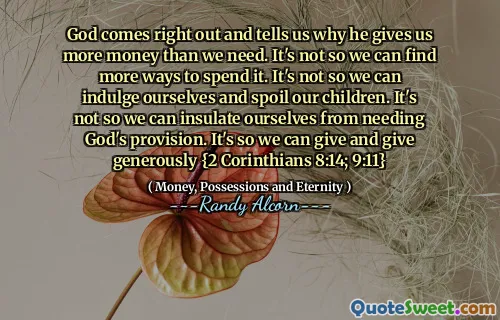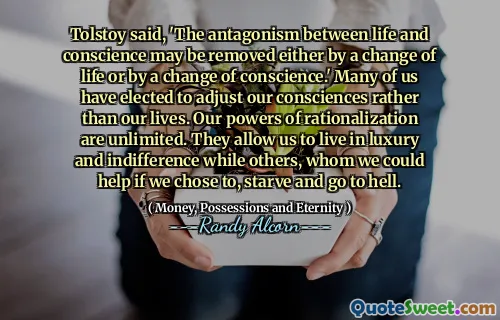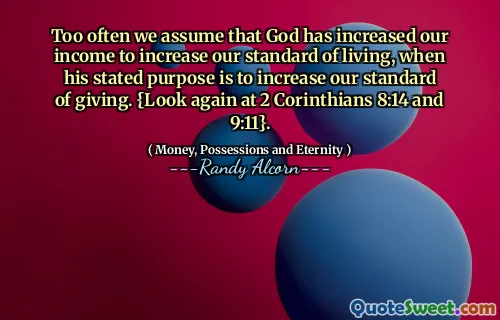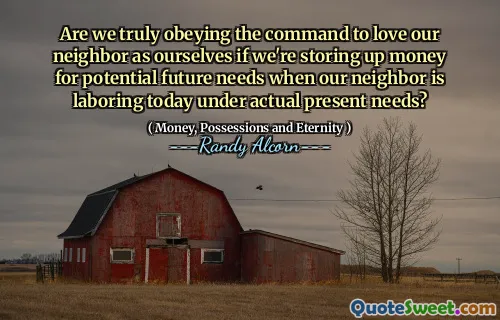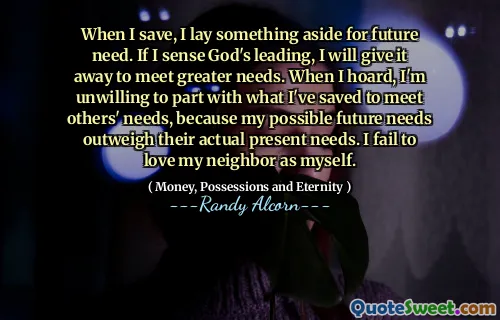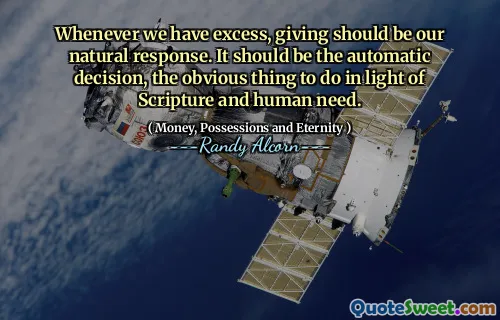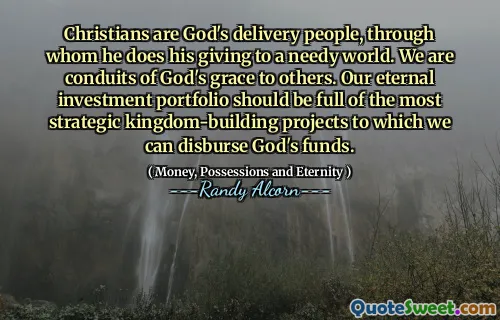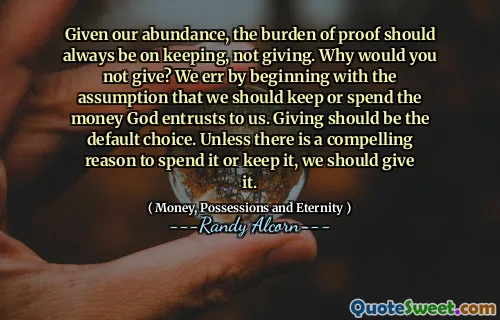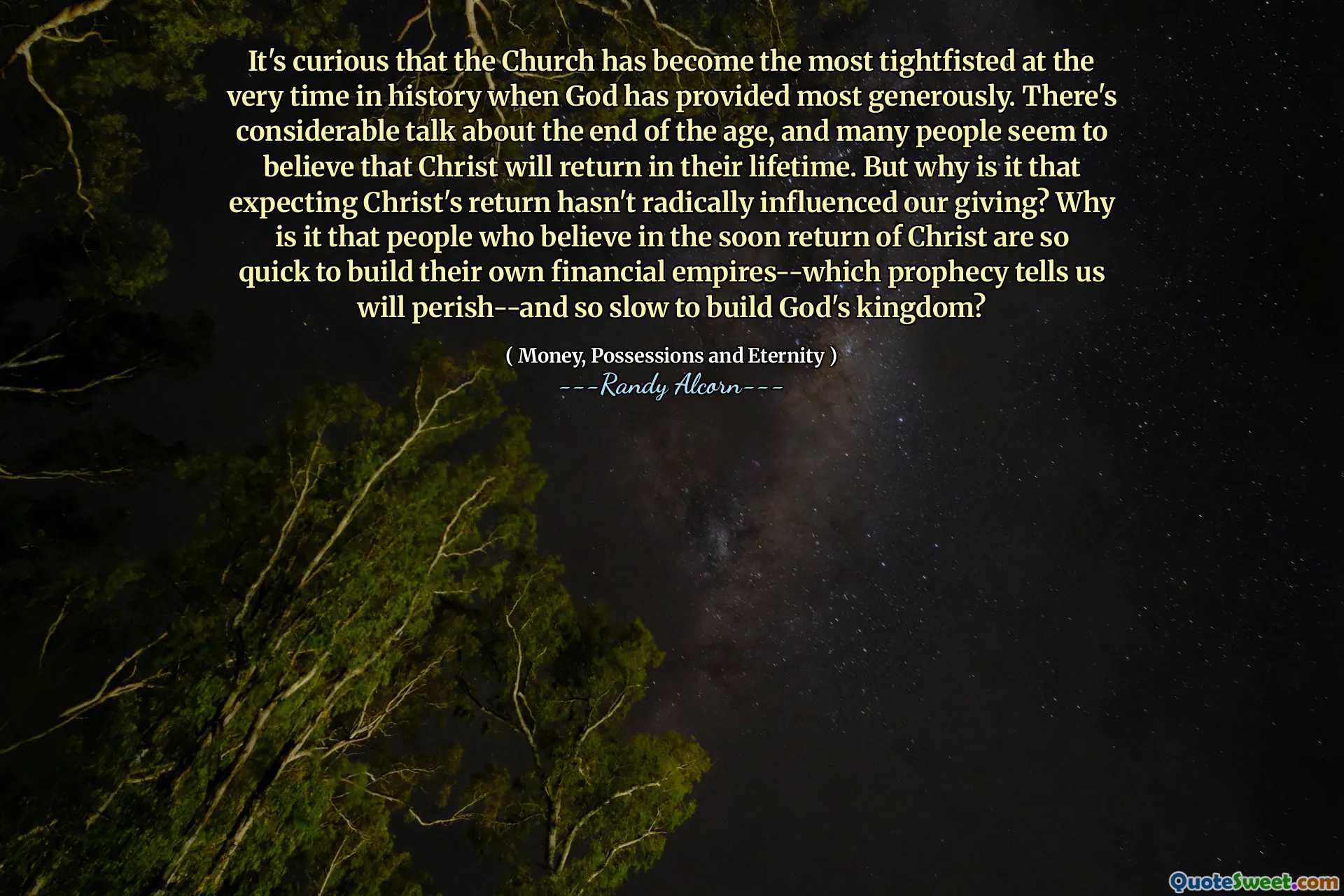
It's curious that the Church has become the most tightfisted at the very time in history when God has provided most generously. There's considerable talk about the end of the age, and many people seem to believe that Christ will return in their lifetime. But why is it that expecting Christ's return hasn't radically influenced our giving? Why is it that people who believe in the soon return of Christ are so quick to build their own financial empires--which prophecy tells us will perish--and so slow to build God's kingdom?
Randy Alcorn points out an intriguing paradox within the Church: while God has been exceedingly generous, the Church itself has become increasingly stingy. Despite widespread beliefs about the imminent return of Christ, this expectation does not seem to inspire radical changes in how individuals allocate their resources. Instead of prioritizing the growth of God's kingdom, many believers focus on accumulating wealth for themselves, which is, according to prophecy, destined to vanish.
This discrepancy raises questions about the true impact of faith on financial behavior. Alcorn challenges the notion that an anticipation of Christ’s return should compel believers to invest more in eternal pursuits rather than temporal financial gains. The contrast between the urgency of Christ’s potential return and the slow pace of generosity among believers calls for introspection about priorities and values within the faith community.

